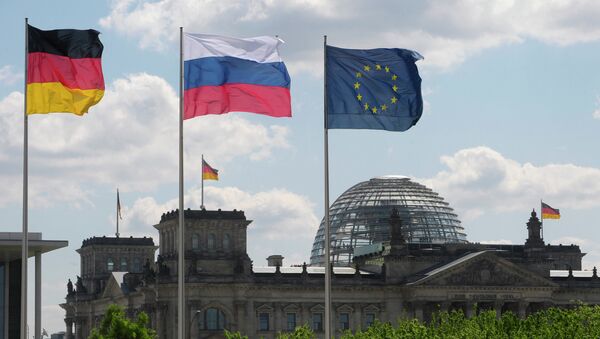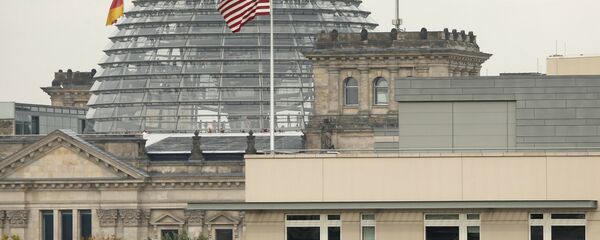"On 21 December 2018, the Council prolonged the economic sanctions targeting specific sectors of the Russian economy until 31 July 2019. This decision follows an update from President Macron and Chancellor Merkel to the European Council of 13-14 December 2018 on the state of implementation of the Minsk agreements, to which the sanctions are linked", it said.
READ MORE: French National Rally Party Condemns New EU Sanctions on Russia — Vice President
"Given that no progress has been made, the European Council took the political decision to roll-over the economic sanctions against Russia. The Council adopted this decision today by written procedure and, in line with the rule for all such decisions, unanimously", the statement added.
The EU's sanctions policy on Russia includes three independent tracks: visa restrictions against Russian citizens, economic sector sanctions against a number of Russian state-owned oil, defence and financial sectors, as well as restrictive measures against the Crimea. All these packages were introduced in 2014 and with the non-Crimea sanctions extended twice a year and the Crimea sanctions once a year.



